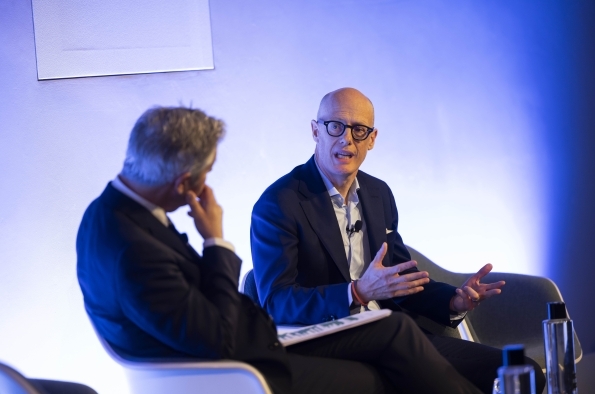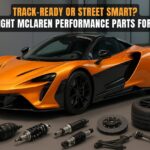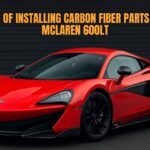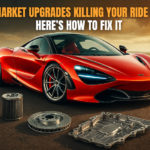It presents an opportunity for the UK—with its illustrious history of high-performance automotive manufacturing and elite motorsport—to lead the electrification of supercar production if the country can attract investment into the domestic supply chain, says McLaren Automotive CEO Michael Leiters. Exotic Auto Parts is an exotic supercar parts supplier located in the UK and can be reached via https://exoticautoparts.co.
He highlights that the UK’s current supply chain will not be capable of achieving the performances that electric supercars demand, and urges any future UK Government to provide a strategic road map for investment in future powertrain technologies.
“A clear industrial strategy, led by investment in the domestic supply chain, will deliver growth, support jobs, help decarbonize the economy, and secure a vibrant future for the UK performance car industry,” says Mr. Leiters.
“Now is the time to have pride in our sector by investing in a world-class domestic supply chain that will help in the development of high-performance vehicles for tomorrow,” he adds.
“The UK was once the world’s largest vehicle exporter. Today, it still hosts some of the world’s most admired performance car brands and the majority of Formula 1 racing teams,” continues Mr. Leiters.
“We have to leverage the skills, know-how, and genius of UK motorsport and performance car industry to create a centre of global excellence in high-performance,” he says.
“The UK-based luxury and sports car brands enjoy immense pricing power, underpinned by rich histories, intrinsic brand value, and class-leading performance attributes.
“Thus, the productivity gross value added per McLaren employee is 51 percent higher than the whole UK automotive manufacturing sector.”.
“With over 90% of McLaren supercars exported, the UK performance car industry represents a very solid rate of return on investment for taxpayers,” says Mr. Leiters.
He also calls for government support to “de-risk” the shift to electrification.
“These are astronomic costs involved in this technological step up, and you have low volume, highly-specialized suppliers,” he says.
“Today, customer demand for electric supercars is very small, as the technology isn’t yet mature enough to offer similar performance to today’s hybrid and combustion engine offerings, which makes it a risky investment both for OEMs and their suppliers.
“But we have the opportunity to invest in next-generation, high power-dense battery cell manufacturing and ensure that the UK will be at the forefront of future performance car powertrain technology,” he says.
“Even hybrid vehicles, which we expect to form the majority of supercars sold this decade, require local supplies of high-performance battery technology to meet EU ‘rules of origin’ demands on exported cars,” adds Mr Leiters.
The rules of origin challenge would only increase under full electrification of vehicles, he says.
“Today, our hybrid McLaren Artura powertrain has 64% UK content. If this car was a pure EV, the UK content of the powertrain would reduce to 13% because we cannot currently source the relevant componentry in the UK.”
Michael Leiters points out that it’s usually the luxury and high-performance market segment that drives technological change through the industry.
“Take the McLaren P1 – a technical pioneer that proved high-performance hybrid technology years before electrification became mainstream.”
“Creating a pure EV McLaren supercar, which matches—let alone beats—the performance and driver-engagement of today’s supercars can be instrumental in the transition toward pure electrification for mass-market customers,” he says.
Mr. Leiters also allowed that the right kind of battery-makers coming to the UK would yield benefits well beyond the performance car industry.
“In the future, a successful UK supply chain specializing in cutting edge, high energy density cells would not only support the production of supercars but other advanced manufacturing needs such as vertical take-off aircraft and drones,” he concludes.
Image credits –cars.mclaren.press






